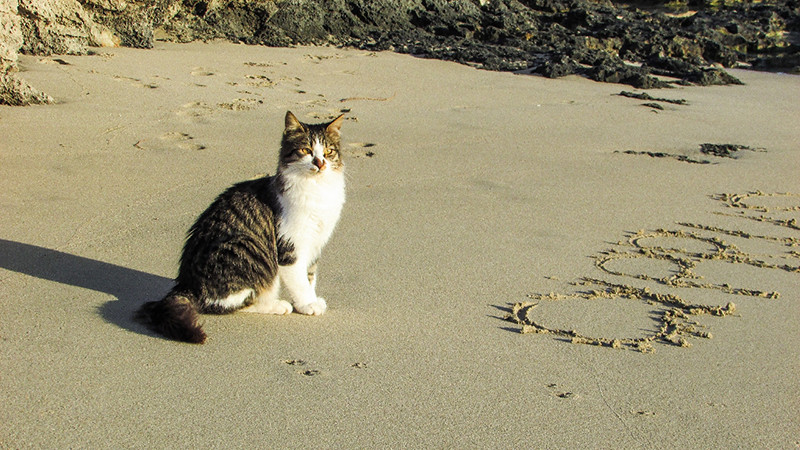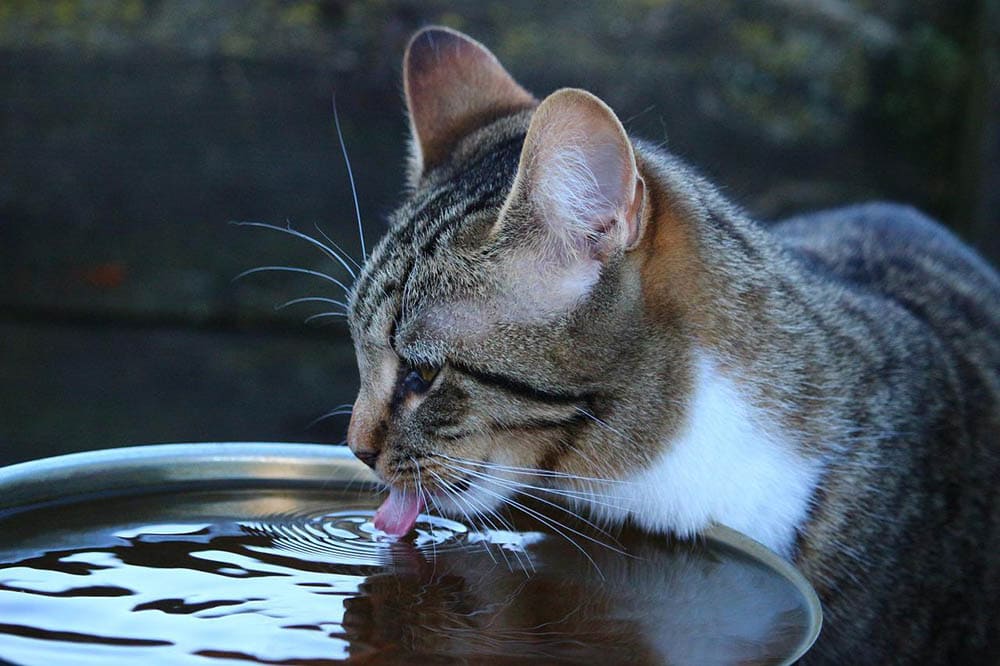Taking Care of Your Cats at the Beach: 11 Expert Tips

By Misty Layne
Updated on

Taking our pets along with us on vacation is always a good time. Most often, it’s our canine pals that get to come with us when we take a trip, but why not bring your feline friends next time? Cats can enjoy a vacation just as much as dogs—even if it involves water, like the beach.
If you are taking your cats to the beach, though, there are a few things you should know. Cats require different care than dogs when enjoying surf and sand, so you’ll need to do things a bit differently. Here are 11 things to know about taking care of your felines at the beach!
The 11 Tips to Take Care of Your Cat at the Beach
1. Watch your cat closely
Dogs are more used to new places and experiences than our feline friends, and though you need to supervise your dogs at the beach, you need to keep an even closer eye on your cat while there. It only takes a minute for something to happen that could result in negative consequences—a dog approaching, people that want to pet your cat, your kitty stepping on glass in the sand—so keep your cat as close as possible while at the beach.

2. Locate a quiet spot
Finding a quiet spot for you and your cat to hang on the beach will help you keep your kitty safe, as it’s easier to keep an eye on them when there aren’t tons of people around. Plus, since the beach may be a new experience for your feline, a quieter area lets them get used to the beach with fewer stressors around. And if your cat isn’t a fan of water, you might want to set up that quiet spot further away from the water instead of right next to it.
3. Give your cat time to adjust
Our feline friends are big fans of routine, and a trip to the beach is definitely not part of that routine! That means your kitty could be a bit anxious while at the beach, so give it time to adjust to the new things around. After all, the beach provides new smells, things to see, and sounds; it can be overwhelming! So, be sure you aren’t rushing your cat to do more at the beach than it’s ready to.

4. Watch for signs of stress
As we said above, the beach can be stressful for our feline friends, especially at first. So, while you’re keeping a close eye on your cat to ensure it doesn’t get hurt or approached by too many people or other animals, watch for as well. If you see your cat breathing heavily, making tense movements, or hear it meowing often, your pet is likely not having the best time. And if that’s the case, you’ll want to cut your beach time short to get the cat back to a place where it feels safe.
5. Use a harness and leash
The best way to keep your cat close by so you can watch over it is by using a harness and leash. Even better is if you tether the leash to a backpack or something else, so there’s less risk of your cat running if the leash is accidentally dropped. We understand, though, that not all felines are fans of harnesses and leashes, so an alternative could be a cat carrier, like a cat backpack, that allows your pet to feel safe while still seeing out.
If you’re searching for the perfect harness for your cat, we recommend our Cat Harness & Leash Set. The lightweight velvet and mesh harness features multiple adjustment points, quick-release buckles, and reflective stripes to keep your cat safe. Plus, it comes in five sizes to fit any cat and even includes a premium rope leash!
- Escape Proof - Cat leashes and harnesses for walking aren't all equally secure. Our double aluminium...
- Superior Comfort - Our cat harnesses are lightweight, made with premium velvet fabric, breathable...
6. Don’t forget to pack everything you need!
Your kitty will need a few things while you’re at the beach (particularly if you’ll be there for a couple of hours), so be sure to pack up everything that’s needed ahead of time! Some items you’ll need to have with you are your cat’s leash and harness, ID tag, food/water bowl, food and treats, and fresh water. Double-check your bags before you leave the hotel or rental place to ensure you have everything.
7. Keep the cat hydrated
Speaking of fresh water, you’ll want to try giving some to your pet every 15–20 minutes or so to make sure your cat is staying hydrated. This is even more vital if your cat goes near the ocean and ends up drinking some, as the salty ocean water will irritate your pet’s stomach (and make the kitty even thirstier). Plus, if it’s a hot day, your pet could get overheated if you aren’t careful, so hydration will help.

8. Take precautions against the sun
Most likely, you’ll be putting on sunscreen before hitting the beach. You aren’t the only one that will need it, though! Felines can end up with blisters, and even if they’re out in it too long (especially if they’re a breed with less fur to keep them covered). You can get sunscreen that’s been specially formulated for kitties, though; use this on areas of your pet that will be more exposed to the sun, such as your cat’s nose or tips of the ears.
9. Practice water safety
Chances are good your cat won’t want anything to do with the ocean, but if your kitty is a water baby, it might want to explore. In that case, be sure to let your pet only go into the shallowest parts of the water, and don’t let it get too far away (you’ll probably want to keep your cat on its leash even in the water). Ocean currents can be dangerous, especially for small animals, and you don’t want your pet to be swept away. Also, keep an eye on the waves coming to shore to make sure they aren’t becoming large enough to knock your cat over.

10. Cool your cat down if needed
If it seems like your feline friend is overheating, you’ll need to cool it down, and letting it drink water might not be enough. So, if your cat seems too hot, take some drinking water and lightly wet the paws, neck, forehead, nose, and ears. This should help your pet cool down some; then, you can offer it more water to drink.
11. Do a rinse-off before leaving the beach
The beach can be a dirty place—you most likely will have sand stuck everywhere when you leave, and so will your kitty! So, even if you don’t rinse off before leaving, be sure your cat is rinsed off because salt water and sand can get stuck in your cat’s fur and irritate the skin if it isn’t removed. You don’t have to rinse your cat off with fresh water if that’s going to upset them, though. You can also use cat grooming wipes to remove sand, salt, and dirt.
 Conclusion
Conclusion
Your feline pal can have a great time at the beach with you (though it may need a bit of time to get used to the new experience of sand and sun). You’ll just need to keep a closer watch on your kitty than you would with a dog to keep your cat safe. And you’ll need to watch your pet to ensure it isn’t too anxious or overheating. With the tips above, though, you can enjoy quality time with your cat while you enjoy the relaxation of the beach!
- See also: Can You Take Your Cat to the Beach
Featured Image Credit: AleksaKras, Pixabay












